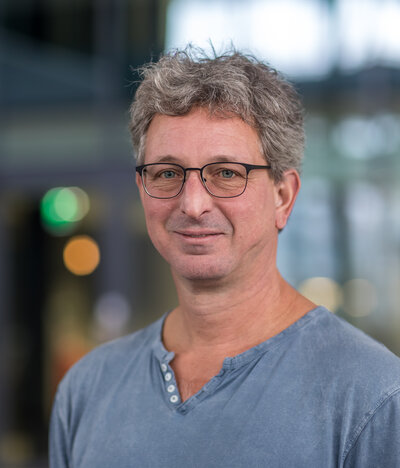Arthur de Jong
Department / Institute

RESEARCH PROFILE
Arthur de Jong is an assistant professor in the research group for Molecular Biosensing for Medical Diagnostics, a joint group of the TU/e departments of Applied Physics and Biomedical Engineering. He develops approaches for single-molecule sensing with the aim to study individual biomolecules in complex environments. He aims to develop next-generation biosensing principles that enable continuous patient monitoring. In his research he combines small colloidal particles with molecular constructs to engineer single molecule sensors. His current research focusses on
* single molecule techniques;
* colloid and interface functionalization and interactions;
* designing and making non-fouling surfaces; and
* microfluidics and sensor integration technology.
Single molecule biosensors are a great benefit for society. They can be applied for monitoring and control in healthcare, food, and the environment.
ACADEMIC BACKGROUND
Arthur de Jong studied Chemical Engineering at Eindhoven University of Technology (TU/e), where he obtained his MSc degree in 1989. In 1994, he received his PhD from the Schuit Institute of Catalysis and continued his research at TU/e in the field of catalysis and surface science as a postdoc. In 1997, he joined the group Applications of Ion Beams and Accelerators at the TU/e department of Applied Physics, where he was appointed as assistant professor in 2000. He joined the group Molecular Biosensing for Medical Diagnostics in 2005. Arthur de Jong is a core member of the Institute for Complex Molecular Systems at TU/e, where groups from different disciplines (chemistry, physics, biomedical engineering, mathematics) collaborate on multidisciplinary research topics.
Recent Publications
-
Chris Vu,Yu Ting Lin,Stijn R.R. Haenen,Julia Marschall,Annemarie Hummel,Simone F.A. Wouters,Jos M.H. Raats,Arthur M. de Jong,Junhong Yan,Menno W.J. Prins
Real-Time Immunosensor for Small-Molecule Monitoring in Industrial Food Processes
Analytical Chemistry (2023) -
Laura van Smeden,Annet Saris,Khulan Sergelen,Arthur M. de Jong,Junhong Yan,Menno W.J. Prins
Reversible Immunosensor for the Continuous Monitoring of Cortisol in Blood Plasma Sampled with Microdialysis
ACS Sensors (2022) -
Alissa D. Buskermolen,Yu-Ting Lin,Laura van Smeden,Junhong Yan,Khulan Sergelen,Arthur M. de Jong,Menno W.J. Prins
Continuous biomarker monitoring with single molecule resolution by measuring free particle motion
Nature Communications (2022) -
Rafiq M. Lubken,Arthur M. de Jong,Menno W.J. Prins
Real-Time Monitoring of Biomolecules
ACS Sensors (2022) -
Rafiq M. Lubken,Max H. Bergkamp,Arthur M. de Jong,Menno W.J. Prins
Sensing Methodology for the Rapid Monitoring of Biomolecules at Low Concentrations over Long Time Spans
ACS Sensors (2021)
Current Educational Activities
- Optics
- Subatomic physics
- Advanced Optical Microscopy
- Experimental physics 3
- Molecular biosensing
- Experimental physics 3
- Design and Automation in Experiments
- Subatomic Physics
- Optical microscopy for Biomedical Sciences
- Advanced Computational and Experimental Skills
- Health monitoring with molecular sensors
- Health monitoring with molecular sensors
Ancillary Activities
No ancillary activities